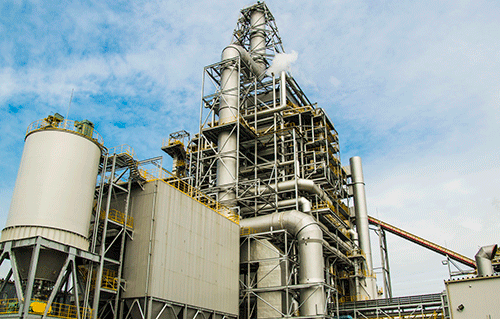The national power utility, Namibia Power Corporation (NamPower), has embarked on the construction of a new power station to enable the cost-effective production of baseload electricity that is expected to contribute to the expansion of domestic power-generation.
The project is anticipated to be a possible answer to the long-awaited realisation of a baseload power station in Namibia. Baseload power refers to the minimum amount of electric power needed to be supplied to the national grid at any given time. Day-to-day trends of power usage need to be met by power plants. However, it is not optimal for power plants to produce the maximum needed power at all times.
Therefore, there are baseload power plants, such as coal or biomass power plants that provide the minimum needed electricity, and peaking power plants that meet the fluctuating needs.
NamPower on Friday signed a loan agreement, engineering, procurement and construction (EPC) contract, as well as woodchip fuel supply contracts for a 40 MW Otjikoto Biomass Power Station.
The signing ceremony signalled the official commencement of the execution phase of the new 40 MW Otjikoto Biomass Power Station Project (OBPS).
To make the new project a reality, the French Development Agency facilitated a loan of up to 100 million Euro (over N$2 billion) for the construction and operationalisation of the power station. The Mitigation Action Facility is providing a grant of 25 million Euro (over N$500 million) towards the capital costs of the power station, and for capacity-building of the local biomass value chain.
In addition, the French Fund for Global Environment is contributing 3 million euros (about N$60 million) for environmental research, and extending the project benefits to vulnerable communities.Government, through the finance and public enterprises ministry, contributed N$400 million.
“The OBPS project will be a game-changer and a transformative leap in NamPower’s plans for the expansion of generation capacity, aimed at ensuring energy security for Namibia.
Once commissioned, the station will be used to facilitate, support and preserve power quality in the electricity grid by providing ancillary services such as synchronising torque, grid inertia and reactive power control. This will strengthen the grid to allow further integration of intermittent renewable energy sources such as solar and wind,” said NamPower managing director Simson Haulofu.
He highlighted that the power station will significantly contribute to reducing greenhouse gas emissions by displacing high-emission electricity imports. This will be done by enabling the integration of renewable energy sources, thereby reducing the utilisation of peaking plants and imports during peak times. In addition, the project is expected to have a lasting impact on the domestic farming and agricultural communities challenged by massive bush encroachment that affects over 26 million hectares of farmland, leading to billions of economic losses.
Haulofu further noted that effective countermeasures through sustainable bush thinning programmes can help preserve the biodiversity and restore Namibia’s savannahs.
They will also create massive economic opportunities through increased agricultural opportunities, as well as new employment opportunities in rural settings. The 40MW OBPS, as well as several other generation and transmission capital projects, currently at different stages of implementation, originated from NamPower’s Integrated Strategic Business Plan (ISBP), where the company identified its strategic focus, application and prioritisation of resources over the next five years (2020-2025).
The ISBP is in line with the mines and energy ministry’s determination on new generation capacities.
Moreover, Haulofu added that OBPS is of great national importance as it will contribute to helping the government accomplish its goals as outlined in the national planning policies, including the 5th National Development Plan (NDP5) and the National Integrated Resource Plan (NIRP). This is by ensuring security of supply, cost-efficiency and self-sufficiency, while at the same time supporting renewable energy commitments prescribed in the Renewable Energy Policy and National Energy Policy. The engineering, procurement and construction (EPC) contractor for the new power station is Dongfang Electric International Corporation, a Chinese State-owned company. The Chinese company has been awarded the contract to construct the new power station.
Representing DongFAng Electric International Corporation at the project launch, Sun Zhenping thanked Nampower for the opportunity to work on the project, and to support the sustainable management of Namibia’s bush resources.
“DEC has been devoting into the global market for several decades, and is constantly navigating green energy development with advanced products, solutions and services. I firmly believe with our strong capabilities and full support from all parties involved in the project, we definitely can complete this project successfully,” said Zhenping.



